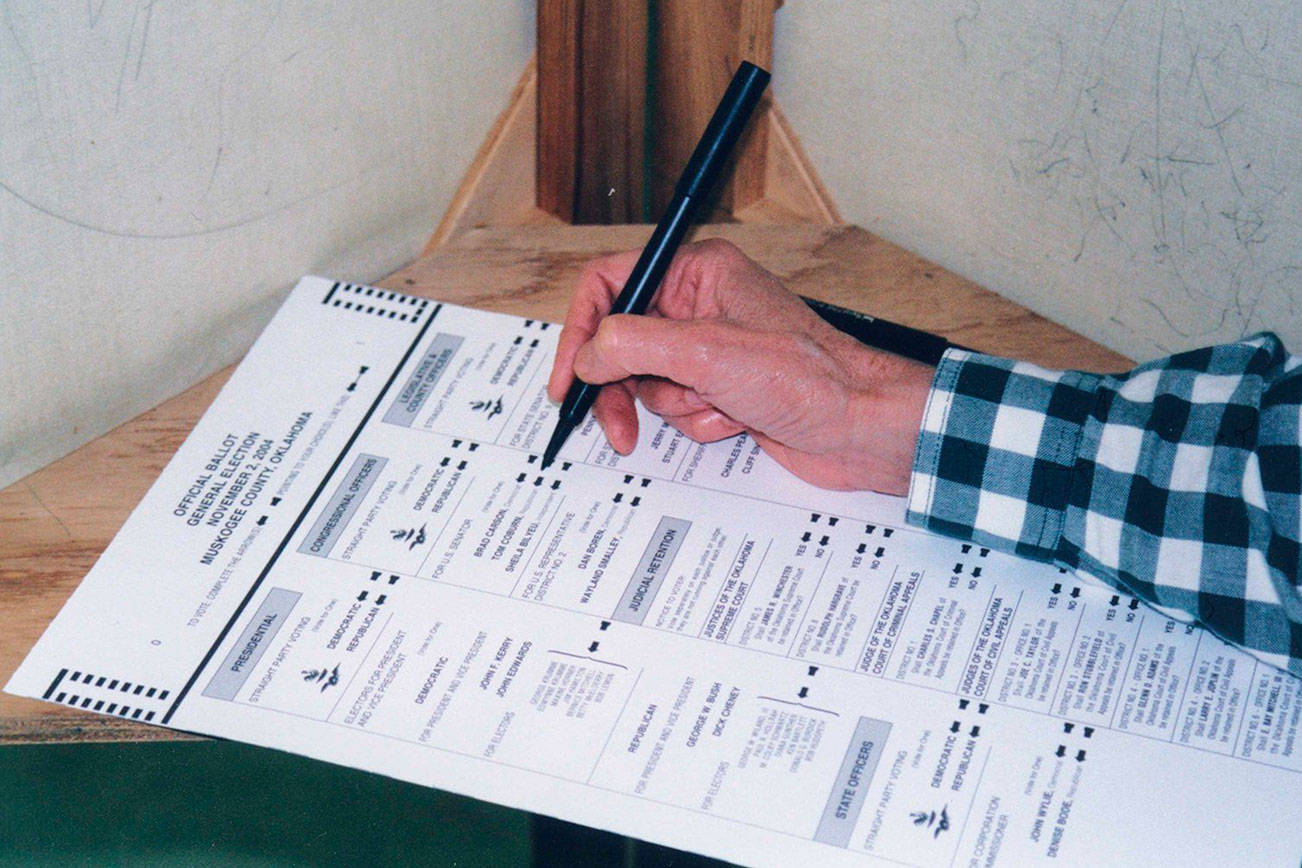Even with the postage paid, thousands of Washington voters didn’t get their ballots in on time for the August primary.
Collectively, auditors rejected 17,167 ballots for the Aug. 7 election because they arrived with a postmark later than Election Day.
King County led the way with 6,325 followed by Snohomish County with 2,155, Pierce County with 1,866 and Spokane County with 1,105, based on data reported to the Secretary of State’s office. Ballots got rejected for this reason in every county.
It amounted to a statewide rejection rate of roughly 1 of every 100 voters, which is about the same rate as in 2010, the last mid-term election in Washington with a U.S. Senate seat on the ballot.
The number in August marked a significant surge from what occurred in last year’s statewide elections. In 2017, auditors across the state rejected 7,520 ballots in the primary and 8,825 in the general election due to a late postmark.
And in dollars and cents, those dilatory voters in August cost taxpayers $8,583.50. The U.S. Postal Service, which may or may not have billed counties in the past, is definitely getting paid this year for processing those late ballots.
With the general election rapidly approaching — and again, no stamps will be required on return envelopes — county and state election officials are preparing to preach harder on the subject of timeliness in the coming weeks.
“I think the message that we have to reinforce is, even though the postage is being paid for you, you still have to get in on time to be counted,” said Snohomish County Auditor Carolyn Weikel.
Secretary of State Kim Wyman said it’s tough to get it to sink in.
Many voters wait until Election Day to make up their minds and mark their ballots, she said. Then, when they go to drop them in a mail box, they don’t notice if it is before or after the day’s last scheduled pick-up.
“The challenge for election officials is that messaging,” she said.
It’s not as if a segment of voters is genetically engineered to be late. When motivated, their on-time performance improves greatly.
Take Snohomish County and the 2016 presidential election. Turnout reached 79 percent with 359,943 ballots returned. Of those, 126,090, or 35 percent, got mailed in. Only 595 of them were rejected because of a late postmark.
August marked the first round in the state’s experiment of paying for postage.
It didn’t appear to have moved the needle on turnout statewide as some had hoped, Wyman said. It did change voters’ behavior, with 61 percent choosing to use the mail rather than a drop box to get their ballot in. In 2017, a majority preferred drop boxes.
Should the percentage grow in the November election, counties could end up spending more on postage than the state is providing them for this endeavor. Auditors would be forced to tap coffers of their respective counties to cover outstanding costs. (King County is paying its own way this year but expects some reimbursement from the state in 2019.)
Taxpayers in those communities would then be picking up the tab for their tardy neighbors.
Jerry Cornfield: 360-352-8623; jcornfield@herald net.com. Twitter: @dospueblos.
Talk to us
Please share your story tips by emailing editor@kentreporter.com.
To share your opinion for publication, submit a letter through our website https://www.kentreporter.com/submit-letter/. Include your name, address and daytime phone number. (We’ll only publish your name and hometown.) Please keep letters to 300 words or less.

